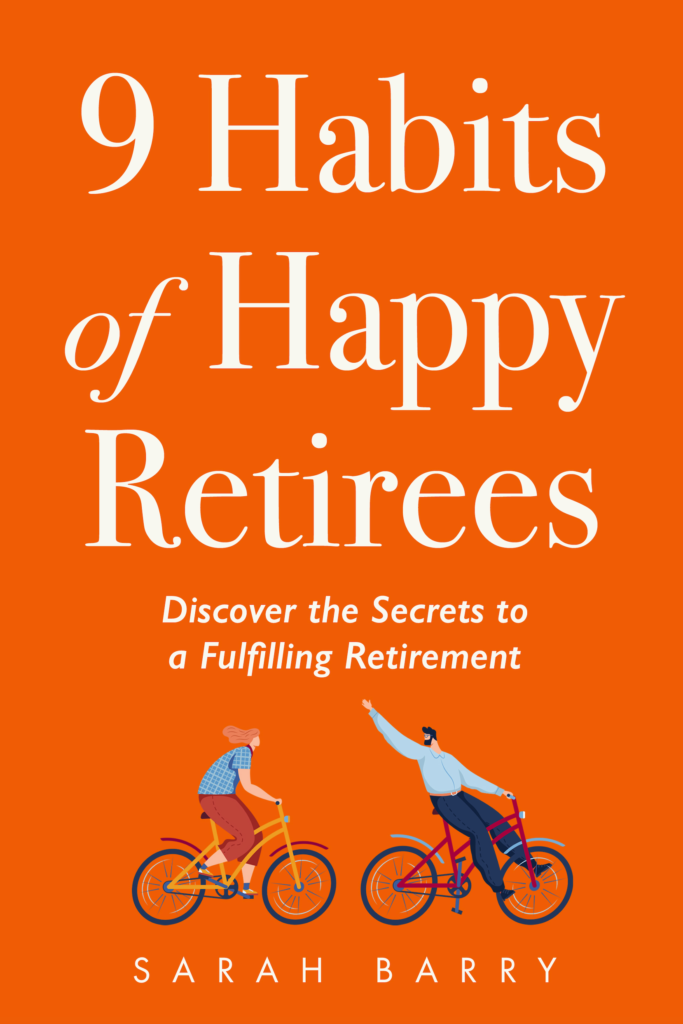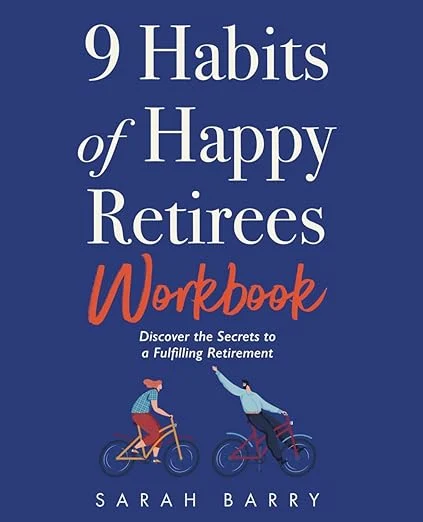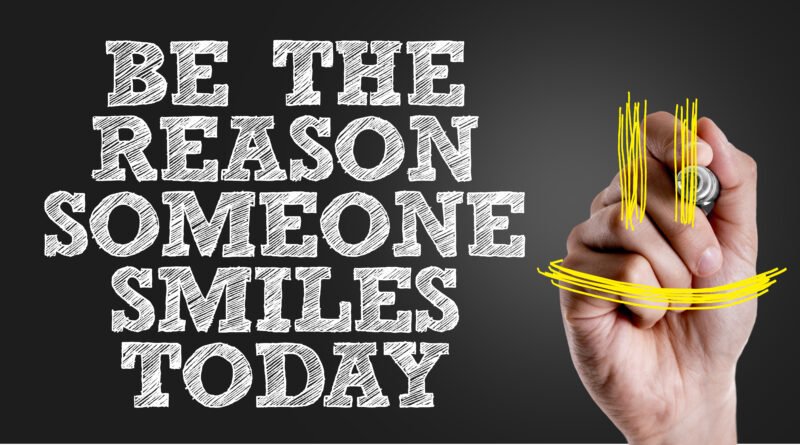Why Helping Others Can Make You Happy
A Life & Retirement Coach’s Insight on Contribution, Fulfilment, and Emotional Well-Being in Your Next Chapter
One of the greatest myths about retirement is that the work is done.
Yes, the job may be over. The office closed. The calendar less crowded. But the real work—the work of making life meaningful, of creating joy, of leaving a legacy—that work continues.
And for many people, that work finds its deepest expression in helping others.
Not all heroes wear capes. Some carry groceries. Some sit beside a hospital bed. Some read to children, or lead community projects, or simply listen without judgment. These everyday acts of kindness aren’t just good for the world—they’re profoundly good for you.
In my years coaching people through the transition into retirement, one truth has become crystal clear:
Helping others can be one of the most powerful ways to stay happy, healthy, and deeply fulfilled in retirement.
Here’s why.
Helping Others Gives You a Renewed Sense of Purpose
When you retire, something subtle—and often unsettling—can happen. The title disappears. The structure softens. The feedback loop that told you, “You’re doing a good job” falls quiet.
For many, this creates a vacuum where purpose used to live.
But purpose isn’t something we’re assigned. It’s something we create. And helping others is one of the most accessible, energizing ways to do just that.
Purpose doesn’t need to look like a big project or grand reinvention. It can look like:
- Driving a neighbor to their weekly doctor appointment
- Writing letters to isolated elders in care homes
- Mentoring a recent graduate navigating career decisions
- Organizing a local litter pick-up or book exchange
- Offering your skills—gardening, accounting, baking—to someone who needs them
These small acts build up. Over time, you begin to feel a renewed sense of direction. You wake up in the morning knowing your day matters. That you matter.
And here’s the deeper truth: When you help others find their way, you often find yours.
Helping Others Enhances Self-Worth and Emotional Well-Being
For many retirees, the transition from “busy professional” to “person with time” can trigger an unexpected identity shift. You may wonder:
Am I still useful? Do I still have something to offer? Who am I now?
These questions are normal—and necessary. But they don’t have to lead to doubt. Instead, they can lead to a new version of confidence—one rooted not in productivity, but in presence.
Helping others reminds you:
- You are valuable because of who you are, not just what you did.
- You still have wisdom, empathy, insight, and skills to share.
- Your presence, attention, and kindness have meaning.
And this isn’t just emotional. Studies show that acts of service boost levels of serotonin, dopamine, and oxytocin—chemicals linked to joy, connection, and peace of mind. Helping others quite literally rewires your brain for happiness.
You don’t just feel good about yourself. You start to feel good within yourself.
Helping Others Creates Meaningful Human Connection
Retirement often brings a shift in social life. Work relationships fade. Children grow and become busy with their own lives. And many people find themselves spending more time alone than they’d like.
Yet as human beings, we are wired for connection.
When you help someone, you create a bond—a bridge between your life and theirs. You step into someone else’s world, and you allow them into yours. That connection, especially when built on shared purpose, can blossom into friendship, mentorship, and mutual care.
Whether it’s a short conversation at a food pantry, a regular role at a school or library, or an ongoing volunteer position at a community organization, these moments of helping often become anchors of connection.
They give you:
- A reason to get out of the house
- A place where your name is known
- People who smile when you walk through the door
- A reminder that you are part of something larger than yourself
And while not every person you help will become a lifelong friend, the relationships you build through giving tend to be genuine, grounded, and mutually uplifting.
Helping Others Helps You Stay Grateful and Grounded
One of the quiet benefits of helping others—especially those facing hardship—is that it shifts your perspective. Suddenly, the aches and inconveniences of aging seem a little lighter. The home you sometimes wish were bigger feels just right. The things you thought you were missing begin to feel like blessings you already have.
Gratitude is not about comparison. It’s about awareness.
When you sit beside someone who is grieving, you may feel more present with your own loved ones. When you help someone with mobility issues, you may find renewed appreciation for your morning walk. When you support someone struggling financially, you may feel more intentional with your own resources.
And this awareness does something powerful:
It deepens your sense of satisfaction.
It quiets the noise of “not enough.”
It reminds you how rich life already is.
Helping Others Supports Healthy Aging
Beyond the emotional and relational benefits, helping others can contribute to your physical health as well.
Research has shown that older adults who volunteer or regularly support others experience:
- Lower blood pressure
- Decreased risk of depression
- Better cognitive function
- Stronger immune response
- Lower levels of chronic stress
Why? Because acts of kindness are physically regulating. They boost oxytocin and serotonin. They create positive mental focus. They reduce cortisol and fight inflammation. In short, helping others helps you age well.
And let’s not forget the practical bonus: helping others often gets you moving, thinking, and socially engaged—all essential ingredients for longevity.
Helping Others Leaves a Legacy
As we get older, many of us begin to think about legacy—not just what we leave behind, but how we will be remembered.
Helping others, in both small and large ways, becomes a living legacy. You don’t need to wait for a eulogy to be described as kind, wise, generous, or supportive. You can become that legacy right now—through your actions, your presence, your care.
And the impact is lasting. Because every life you touch ripples outward.
When you help a young person believe in themselves, that belief carries into their future.
When you support a struggling neighbor, they may go on to support someone else.
When you share your time, your story, your kindness—you plant seeds that grow long after you’re gone.
How to Start Helping Others in Retirement
You might be wondering: Where do I begin?
The good news is, there are countless ways to start—many of which fit beautifully into a retired lifestyle.
Here are a few ideas:
- Join a local volunteer group at a food bank, museum, library, or community center
- Offer tutoring, language lessons, or reading support to schoolchildren
- Share professional expertise with nonprofits or small businesses
- Deliver meals to homebound neighbors
- Start a local group—walking, gardening, reading, or crafting
- Offer respite care to caregivers or support families with young children
- Simply call someone who lives alone and ask how they’re doing
And if formal volunteering feels like too much, start with something simple:
- Write thank-you notes
- Cook a double portion and deliver half
- Compliment a stranger
- Listen to someone’s story
- Give encouragement without needing to fix anything
Your capacity to help is not measured in hours or effort. It’s measured in presence.
Final Thoughts from a Retirement Coach
Helping others isn’t about being a hero. It’s about being human. It’s about showing up in the world with the gifts you already have—time, care, wisdom, and kindness—and offering them with humility.
In retirement, helping others is more than an activity. It’s a spiritual practice. It connects you to something beyond yourself. It brings meaning to your days. It anchors you in gratitude. And perhaps most importantly—it brings you joy.
So if you’re searching for your next step, consider this:
Start where you are. Give what you can. And trust that in helping others, you’re also helping yourself.
Ready to bring more joy, purpose, and balance into your retirement years?
Explore 9 Habits of Happy Retirees and the companion workbook—your next chapter starts here. Find them now on Amazon.

Retirement Re-defined
“9 Habits of Happy Retirees” is your guidebook to crafting a retirement lifestyle that goes beyond financial security, focusing on the habits that lead to true happiness and contentment in your golden years.

The Essential Workbook
This workbook is designed to complement the book’s theoretical foundation, it offers a hands-on approach to improving your mental, emotional, and social well-being in retirement.

